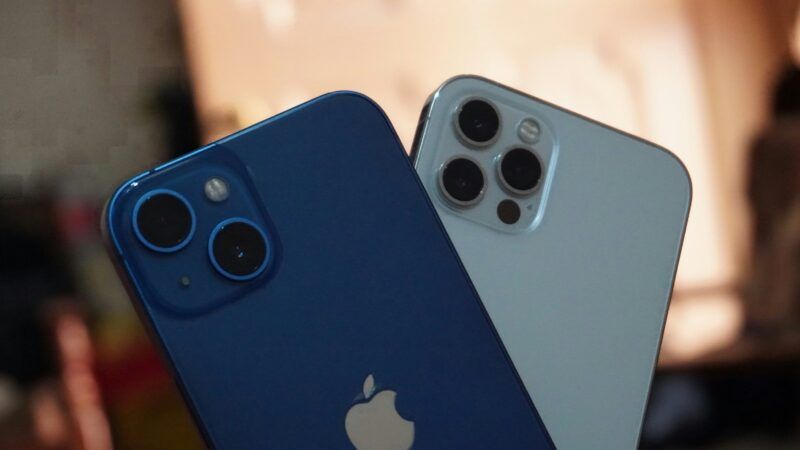Trump Declares That iPhones Should Be More Expensive
Whether due to tariffs or because they are made in America, the result would be much higher prices.

President Donald Trump threatened on Friday morning to raise prices on iPhones sold in the United States, as he threatened to slap a 25 percent tariff on Apple smartphones that aren't built in the United States.
"I have long ago informed Tim Cook of Apple that I expect their iPhone's (sic) that will be sold in the United States of America will be manufactured and built in the United States, not India, or anyplace else," Trump posted on Truth Social. "If that is not the case, a Tariff of at least 25% must be paid by Apple to the U.S."
In either outcome, consumers will have to pay more. A 25 percent tariff on iPhones built in other countries would, of course, artificially inflate prices. On the other hand, an American-made iPhone would likely be even more expensive: one estimate pegs the cost of an American-made iPhone at around $3,500.
Other experts doubt that such a product would ever exist—in all likelihood, Apple would rather pay the tariff rather than shift its manufacturing supply chains. "It's just not a reality that on the time frame of imposing tariffs that this is going to shift manufacturing here. It's pie in the sky," Jeff Fieldhack, research director at Counterpoint Research, told CNBC in April when the White House was making noises about the desire for an American-made iPhone.
"It's easier to teach a bald eagle to use a screwdriver," concludes the Journal's Joanna Stern after surveying several tech manufacturing experts.
Since it would cost way more to build new factories, comply with American regulations, and pay American workers to build iPhones, the most likely outcome of this policy is that Apple would simply pay the high import taxes and pass those costs along to consumers. In other words, Americans will end up with more expensive phones and no new factory jobs.
Of course, that assumes these tariffs ever actually exist. We've now seen Trump repeatedly threaten, impose, and then back down from various tariff proposals since returning to office in January. The Washington Post calculates that Trump has made more than 50 changes to U.S. tariff policy in barely four months.
Much uncertainty remains, but here are three things we can conclude about Trump's latest tariff announcement.
First, there is apparently no way to buy your way out of Trump's tariff mania. Apple CEO Time Cook donated $1 million to Trump's inauguration fund and has pledged huge investments in American manufacturing since Trump took office. After meeting with Cook, Trump gave Apple a waiver on the tariffs he imposed in April that covered most other imports from China.
Those attempts at buying the president's goodwill apparently did not make a difference. Other businesses will surely continue to lobby the White House for special treatment, but those efforts might be useless in the face of Trump's tempestuous nature and deeply held love for tariffs. If Apple, one of the more valuable companies in the world, can't buy special treatment, who can?
Second, specifically targeting iPhones makes this an escalation of Trump's trade war and his desire to set prices. It's unclear whether the president has the ability to raise tariffs on a single product—tariffs are applied based on import classes, so the administration would probably have to raise taxes on all imported smartphones—but that's clearly what Trump intends to do.
Trump sees himself as the country's shopkeeper in chief who gets to set prices on all goods sold in America. That's the sort of central planning that should scare all but the most hardened of socialists. Now, instead of setting prices for broad categories of products—by hiking tariffs on steel, aluminum, and so on—Trump seemingly wants to expand his purview to individual products.
Finally, let's play with a hypothetical. Imagine that, one year ago, President Joe Biden had woken up in a bad mood, stumbled into the White House briefing room, and shouted into a microphone about a plan to make iPhones more expensive. That would likely put an end to any questions about the president's mental acuity or his fitness for office. Republicans in Congress would be outraged about the president's scheme to raise prices on products that Americans need for their daily lives, and maybe they'd even try to stop it from happening.
Why should Trump be treated any differently?
A new 25 percent tariff on iPhones is a wacky idea that won't help Americans or boost the economy. It is unlikely to ever be implemented. All it really does is reveal the delusions that dominate the mind of a man who believes his job is to decide how much consumers should pay for everything.


Show Comments (111)